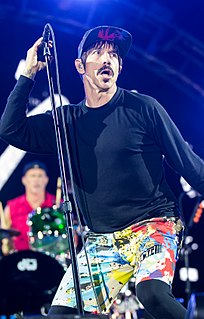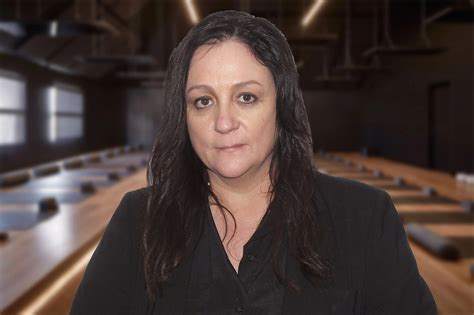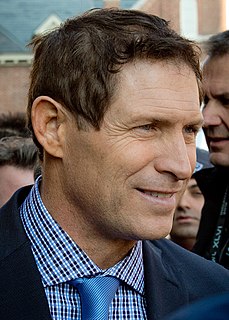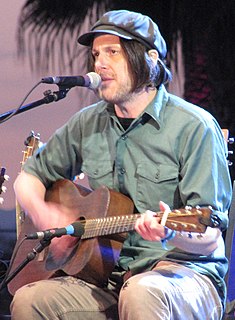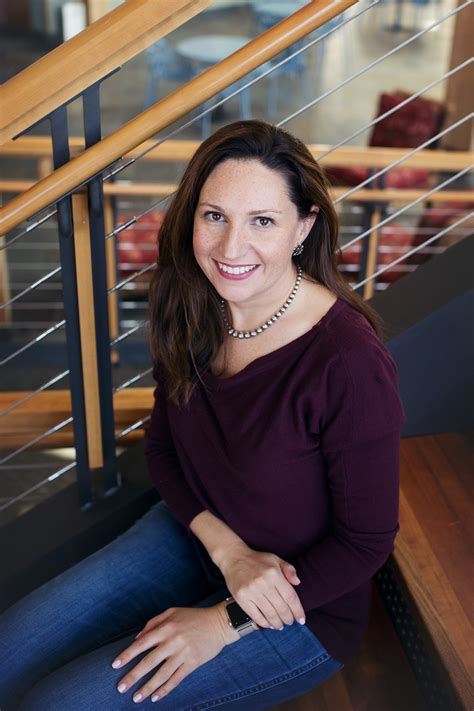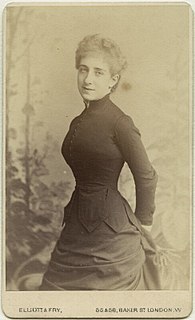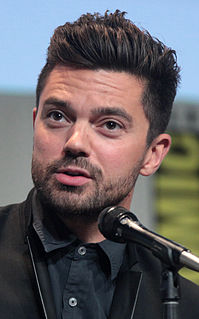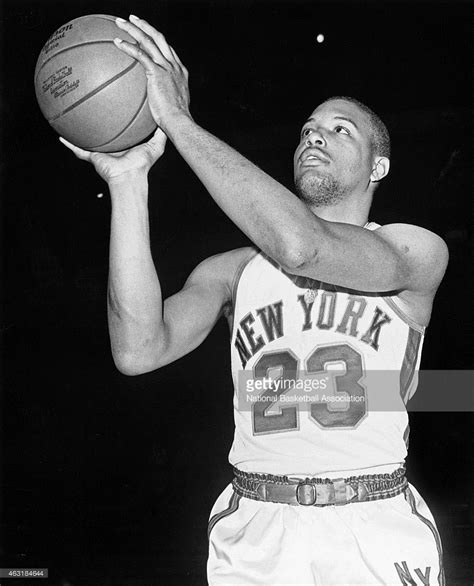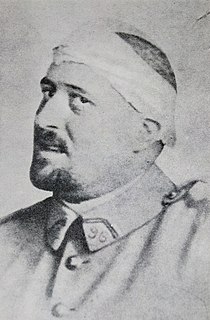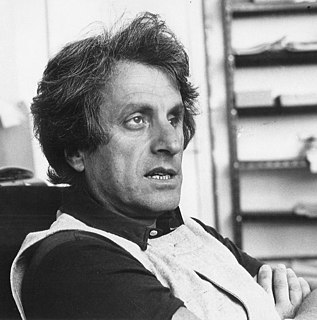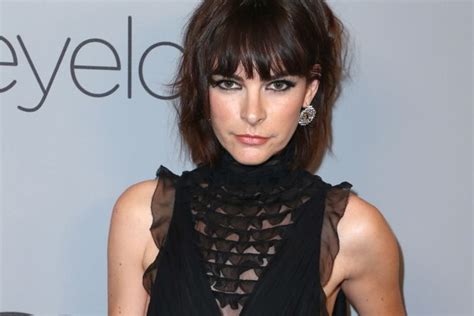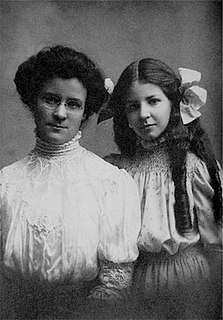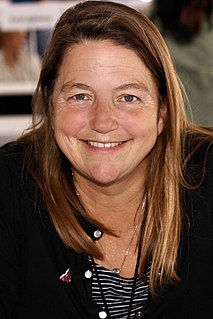Top 1007 Intuition Quotes & Sayings - Page 16
Explore popular Intuition quotes.
Last updated on April 16, 2025.
The Theatre of the Absurd has renounced arguing about the absurdity of the human condition; it merely presents it in being - that is, in terms of concrete stage images. This is the difference between the approach of the philosopher and that of the poet; the difference, to take an example from another sphere, between the idea of God in the works of Thomas Aquinas or Spinoza and the intuition of God in those of St. John of the Cross or Meister Eckhart - the difference between theory and experience.
We must evaluate the political sympathies of other states and the effect war may have on them. To assess these things in all their ramifications and diversity is plainly a colossal task. Rapid and correct appraisal of them clearly calls for the intuition of a genius; to master all this complex mass by sheer methodical examination is obviously impossible. Bonaparte was quite right when he said that Newton himself would quail before the algebraic problems it could pose.
Stupid people like to delude themselves that while they may not be clever, they were at least able to compensate with feelings and insights denied to the intellectual....It was precisely this kind of false belief that made stupid people so stupid. The truth was the clever people had infinitely more resources from which to make the leaps of connection that the world called intuition. What was 'intelligence' after all, but the ability to read into things?
Awe is an intuition for the dignity of all things, a realization that things not only are what they are but also stand, however remotely, for something supreme. Awe is a sense for transcendence, for the reference everywhere to mystery beyond all things. It enables us to perceive in the world intimations of the divine. ... to sense the ultimate in the common and the simple: to feel in the rush of the passing the stillness of the eternal. What we cannot comprehend by analysis, we become aware of in awe.
I had to sit with my senses. This clear, beautiful intuition took over. I knew exactly how I felt, and I wasn't confused or clouded or compromised. I realized that none of my feelings had diminished, but I might have to lose someone I truly loved. I didn't want to run away from Claire, but I knew drug addiction was strong enough that I had to be willing, if need be, to let go of the person I'd just fallen in love with.
Take the years when you’re young – say, between the ages of fifteen and thirty-five, before you have a mortgage or kids or anything else that needs to be fed – and go balls out on intuition and follow your dreams. Dreams won’t always take you on a straight path to destiny, but they’re usually related to what your soul wants for you. They’ll force you to ask yourself the hard questions, they’ll kick your ass, and most importantly, they’ll turn you on.
What I affirm is the intuition that where God's presence is no longer a tenable supposition and where His absence is no longer a felt, indeed overwhelming weight, certain dimensions of thought and creativity are no longer attainable. And I would vary Yeats's axiom so as to say: no man can read fully, can answer answeringly to the aesthetic, whose "nerve and blood" are at peace in sceptical rationality, are now at home in immanence and verification. We must read as if.
While I do not think it was so intended I have always been of the opinion that this turned out to be much the best for me. I had no national experience. What I have ever been able to do has been the result of first learning how to do it. I am not gifted with intuition. I need not only hard work but experience to be ready to solve problems. The Presidents who have gone to Washington without first having held some national office have been at great disadvantage.
Though there was no sound, there was a change. The atmosphere, which had gone tense at my accusation, relaxed. I wondered how I knew this. I had a strange sensation that I was somehow receiving more than my five senses were giving me - almost a feeling that there was another sense, on the fringes, not quite harnessed. Intuition? That was almost the right word. As if any creature needed more than five senses.
The opposition of instinct and reason is mainly illusory. Instinct, intuition, or insight is what first leads to the beliefs which subsequent reason confirms or confutes; but the confirmation, where it is possible, consists, in the last analysis, of agreement with other beliefs no less instinctive. Reason is a harmonizing, controlling force rather than a creative one. Even in the most purely logical realms, it is insight that first arrives at what is new.
Only through blind Instinct, in which the only possible guidance of the Imperative is awanting, does the Power in Intuition remain undetermined; where it is schematised as absolute it becomes infinite; and where it is presented in a determinate form, as a principle, it becomes at least manifold. By the above-mentioned act of Intelligising, the Power liberates itself from Instinct, to direct itself towards Unity.
Chess is a unique battlefield for human minds and computers - human intuition, our creativity, fantasy, our logic, versus the brute force of calculation and a very small portion of accumulated knowledge infused by other human beings. So in chess we can compare these two incompatible things and probably make projections into our future. Is there danger that the human mind will be overshadowed by the power of computers, or we can still survive?
Every work of art reaches man in his inner powers. It reaches him more profoundly and insidiously than any rational proposition, either cogent demonstration or sophistry. For it strikes him with two terrible weapons, Intuition and Beauty, and at the single root in him of all his energies... Art and Poetry awaken the dreams of man, and his longings, and reveal to him some of the abysses he has in himself.
Since ancient times, the left side has stood for the side of the unconscious or the unknown; the right side, by contrast, has represented the side of consciousness or wakefulness. Through the late twentieth century, the movement of the Left limited themselves to a materialist understanding of reality- exemplified by Marxism- demanding social justice and economic equality but not the restoration of intuition and the recognition of the hidden, qualitative dimensions of being suppressed by the mental-rational consciousness, narrowly focused on the quantifiable.
Mathematics is often erroneously referred to as the science of common sense. Actually, it may transcend common sense and go beyond either imagination or intuition. It has become a very strange and perhaps frightening subject from the ordinary point of view, but anyone who penetrates into it will find a veritable fairyland, a fairyland which is strange, but makes sense, if not common sense.
What an artist does, is fail. Any reading of the literature, (I mean the literature of artistic creation), however summary, will persuade you instantly that the paradigmatic artistic experience is that of failure. The actualization fails to meet, equal, the intuition. There is something "out there" which cannot be brought "here". This is standard. I don't mean bad artists, I mean good artists. There is no such thing as a "successful artist" (except, of course, in worldly terms).
It may well be feared, that there is not enough Biblereading among us. It is not sufficient to have the Book. We must actually read it, and pray over it ourselves. It will do us no good, if it only lies still in our houses. We must be actually familiar with its contents, and have its texts stored in our memories and minds. Knowledge of the Bible never comes by intuition. It can only be obtained by diligent, regular, daily, attentive, wakeful reading.
We, all of us in the First World, have participated in something of a binge, a half century of unbelievable prosperity and ease. We may have had some intuition that it was a binge and the earth couldn't support it, but aside from the easy things (biodegradable detergent, slightly smaller cars) we didn't do much. We didn't turn our lives around to prevent it. Our sadness is almost an aesthetic response - appropriate because we have marred a great, mad, profligate work of art, taken a hammer to the most perfectly proportioned of sculptures.
Think about the number of times someone will say to herself, "I want to get out of this circumstance, but I'm too afraid. I'll lie about how happy I am in this marriage, and I'll put up a front." But she's betraying everything that's in her heart. She's making choices that are harming her, and that's why she's hurting. Her intuition is trying to tell her that.
Sex and beauty are inseparable, like life and consciousness. And the intelligence which goes with sex and beauty, and arises out of sex and beauty, is intuition." "And they rock, and they rock, through the sensual ageless ages on the depths of the seven seas, and through the salt they reel with drunken delight and in the tropics tremble they with love and roll with massive, strong desire, like gods.
The ancient intuition that all matter, all "reality," is energy, that all phenomena, including time and space, are mere crystallizations of mind, is an idea with which few physicists have quarreled since the theory of relativity first called into question the separate identities of energy and matter. Today most scientists would agree with the ancient Hindus that nothing exists or is destroyed, things merely change shape or form; that matter is insubstantial in origin, a temporary aggregate of he pervasive energy that animates the electron.
We all have the power, intuition, and ability to think and act for ourselves until we give that power away. We give our power away because we're bullied into thinking we aren't good enough and someone else must know better than us; therefore, we should give over our instincts and act according to instruction.
We all have within us a deep sense of what we need, and what is right and true for us. To access this we need to pay attention to our feelings and our intuition. We need to learn to listen deeply to ourselves and to trust what we hear. And we need to risk acting on what we feel to be true. Even if we make mistakes, we must do this in order to learn and grow.
One of the things meditation gives you is creativity because creativity really comes from the subconscious brain - intuition, imagination - so it's not like you can go there and say, I'm going to go be creative now. Maybe you can, but the real way you get creativity is, you know, you're taking a hot shower and great ideas come to you from the subconscious. Essentially, meditation opens a pipeline between the conscious and the subconscious.
When was about 16 or 17, I was living in Beaumont, Texas and Carlos Montoya came to Lamar College. I went to see him and I didn't know what flamenco was. But when I saw him play, I was blown away that one man on one instrument could make all that sound. I'd learned a lot, but that made a big impact. I had intuition for it. In about three years I learned most of what I know now.
"Cynicism," like "heresy" and "heterodoxy" and "atheism" and "agnosticism" and "paganism" and "heathenism," is above all else a way for organized orthodoxy's caste of official censors to encyst and segregate and thus neutralize all contrarian forms of seeing and thinking, all (necessarily implicitly) prohibited and repressed ways of exercising disruptive and iconoclastic intuition and intellection (for to analyze and explain these things too openly is to give them publicity and potential cogency when the point is to asphyxiate them).
I think that so much of the creative process is a fragmentary one, and then it's about just allowing your intuition to put it together for you. It's funny how you create something and you think you're going in a million different directions, and then the thing you end up with is the thing that you wanted to create your whole life, but you're just as surprised by it as anybody else.
Backlock, a poet blind from his birth, could describe visual objects with accuracy; Professor Sanderson, who was also blind, gave excellent lectures on color, and taught others the theory of ideas which they had and he had not. In the social sphere these gifted ones are mostly women; they can watch a world which they never saw, and estimate forces of which they have only heard. We call it intuition.
Intuition is just the sum of all your experience. The way I see it, everything you’ve experienced, everything you know, you think you know and didn’t know you knew is there in your subconscious lying dormant, as it were. As a rule you don’t notice the sleeping creature, it’s just there, snoring and absorbing new things, right. But now and then it blinks, stretches and tells you, hey, I’ve seen this picture before. And tells you where in the picture things belong.
Her professors were astonished by her leaps of thought, by the finesse and elegance of her insights. She arrived at hypotheses by sheer intuition and with what eventually one of her mentors described as an almost alarming speed; she was like a dancer, he said, out in the cosmos springing weightlessly from star to star. Drones, merely brilliant, crawled along behind with laborious proofs that supported her assertions.
To all appearances the artist acts like a mediumistic being who, from the labyrinth beyond time and space, seeks his way out to a clearing. If we give the attributes of a medium to the artist, we must then deny him the state of consciousness on the aesthetic plane about what he is doing or why he is doing it. All this decisions in the artistic execution of the work rest with pure intuition and cannot be translated into a self-analysis, spoken or written, or even thought out.
You carry that through and adapt it to a camera lens, but you're quite right, you cannot be sure of what an audience is going to do. You don't know what's going to happen to the piece you're doing anyway. You don't know how it's going to be edited. There are a lot more unknowns in cinema. But that you have to readily accept. That's when, I think, you have to forget about intellect, to a degree. Intuition is very important when you're working with a lens, I believe, for what the lens is doing, too.
The marvellous instinct with which women are usually credited seems too often to desert them on the only occasions when it would be of any real use. One would say it was there for trivialities only, since in a crisis they are usually dense, fatally doing the wrong thing. It is hardly too much to say that most domestic tragedies are caused by the feminine intuition of men and the want of it in women.
You must believe in your own instincts and your own instincts at any particular time and believe that they were the right ones for any given situation. So, there's no point ever of kind of regretting something because you can't properly remember the exact circumstances in which you were playing out this particular scene. You have to believe in your intuition and your instinct at that moment.
I am dominated by one thing, an irresistible, burning attraction towards the abstract. The expression of human feelings and the passions of man certainly interest me deeply, but I am less concerned with expressing the motions of the soul and mind than to render visible, so to speak, the inner flashes of intuition which have something divine in their apparent insignificance and reveal magic, even divine horizons, when they are transposed into the marvellous effects of pure plastic art.
Casting is really a black art. It's a huge part of directing and it's the most invisible. It's one that people don't really think about or talk about. But you can really destroy your movie by casting it badly before you've shot a foot of film. And yet there are no guidebooks for it, there's no rule book to tell you how to do it. It's all your own experience and your own sensibility and your own intuition.
The policy goal is to persuade China to stop cheating. But here's what's interesting - Donald Trump intuitively understands what things should be. I did a study in 2008 where I estimated the impact of China's unfair trade practices on their competitive advantage - the so-called China Price. You know what it came out to be? Forty-three percent. Forty-three percent - very close to what his intuition said we needed in order to equalize things.
How do we take our anger and transform it into sacred rage? How do we create a language that opens the heart instead of closing it? To bear witness is not a passive act. It's an act of consequence that leads to consciousness. It matters. I am curious. I want to know why. I was raised with a scripture that says, "The glory of God is intelligence." And to me our greatest intelligence is following our instincts, trusting our intuition.
The hope with Tipping Point was it would help the reader understand that real change was possible. With Blink, I wanted to get people to take the enormous power of their intuition seriously. My wish with Outliers is that it makes us understand how much of a group project success is. When outliers become outliers it is not just because of their own efforts. It's because of the contributions of lots of different people and lots of different circumstances.
Even the wisest of mankind cannot live by reason alone; pure arrogant reason, denying the claims of prejudice (which commonly are also the claims of conscience), leads to a wasteland of withered hopes and crying loneliness, empty of God and man: the wilderness in which Satan tempted Christ was not more dreadful than the arid expanse of intellectual vanity deprived of tradition and intuition, where modern man is tempted by his own pride.
The ability to know that your perceptions are accurate has to happen without others' validation. Intuition is not the result of diet, rituals, or wind chimes. It's the natural consequence of having self-esteem, the greatest power you can have. With self-esteem, your life can broaden into an adventure because you can know in your gut that you can handle the unknown. And you can handle helping others without fear, which is true liberation.
Ruskin's much-derided moral theory of art was part of an attempt to show that this human activity, which we value so highly, engaged the whole of human personality. His insistence on the sanctity of nature was part of an attempt to develop Goethe's intuition that form cannot be put together in the mind by an additive process, but is to be deduced from the laws of growth in living organisms, and their resistance to the elements.
Old men tend to forget what thought was like in their youth; they forget the quickness of the mental jump, the daring of the youthful intuition, the agility of the fresh insight. They become accustomed to the more plodding varieties of reason, and because this is more than made up by the accumulation of experience, old men think themselves wiser than the young.
Zen is the enemy of analysis, the friend of intuition. The Zen artist understands the ends of his art intuitively, and the last thing he would do is create categories; the avowed purpose of Zen is to eliminate categories! The true Zen-man holds to the old Taoist proverb,
Those who know do not speak. Those who speak do not know.
If we can combine our knowledge of science with the wisdom of wildness, if we can nurture civilization through roots in the primitive, man's potentialities appear to be unbounded, Through this evolving awareness, and his awareness of that awareness, he can emerge with the miraculous-to which we can attach what better name than 'God'? And in this merging, as long sensed by intuition but still only vaguely perceived by rationality, experience may travel without need for accompanying life.
The new painters do not propose, any more than did their predecessors, to be geometers. But it may be said that geometry is to the plastic arts what grammar is to the art of the writer. Today, scholars no longer limit themselves to the three dimensions of Euclid. The painters have been lead quite naturally, one might say by intuition, to preoccupy themselves with the new possibilities of spatial measurement which, in the language of the modern studios, are designated by the term fourth dimension.
Spiritual Partnership ... The new female and the new male are partners on a journey of spiritual growth. They want to make the journey. Their love and trust keep them together. Their intuition guides them. They consult with each other. They are friends. They laugh a lot. They are equals. That is what a spiritual partnership is: a partnership between equals for the purpose of spiritual growth.
To make music means to express human intelligence by sonic means. This is intelligence in its broadest sense, which includes not only the peregrinations of pure logic but also the "logic" of emotions and intuition. My musical techniques, although often rigorous in their internal structure, leave many openings through which the most complex and mysterious factors of the intelligence may penetrate.
The mental disease of the present generation is impatience of study, contempt of the great masters of ancient wisdom, and a disposition to rely wholly upon unassisted genius and natural sagacity. The wits of these happy days have discovered a way to fame, which the dull caution of our laborious ancestors durst never attempt; they cut the knots of sophistry, which it was formerly the business of years to untie, solve difficulties by sudden irradiations of intelligence, and comprehend long processes of argument by immediate intuition.
I'm not a big note-taker, so I think that the way I decide is that whatever I remember I always consider something that's important. If I remember a joke then I know it's a good joke, if I remember a story then I know it's a good story, and so that's how I curate what stories I'm going to write for the book. And I go over them again, make sure there's a theme and all that stuff, but mostly, it is intuition.
The planet has a kind of intelligence, it can actually open a channel of communication with an individual human being. The message that nature sends is, transform your language through a synergy between electronic culture and the psychedelic imagination, a synergy between dance and idea, a synergy between understanding and intuition, and dissolve the boundaries that your culture has sanctioned between you, to become part of this Gaian supermind
Conventional measures of mental ability, such as intelligence tests and scholarship, show some of the very highest records belong to INFP and INFJ types, who relegate thinking to last place or next to last. The preference for thinking appears to have far less intellectual effect than the preference for intuition, even in some technical fields, such as scientific research, where its influence was expected to be most important.
No one expects the rug to be yanked out from underneath them; life-changing events usually don’t announce themselves. While instinct and intuition can help provide some warning signs, they can do little to prepare you for the feeling of rootlessness that follows when fate flips your world upside down. Anger, confusion, sadness, and frustration are shaken up together inside you like a snow globe. It takes years for the emotional dust to settle as you do your best to see through the storm.
There are three principles to remember if you are to teach a human being anything, and they are consistency, consistency, consistency.They are such fragile creatures to begin with, with poor eyes, poorer hearing, and no sense of smell left to speak of, it's no wonder they are made of fear. Some centuries ago they moved inside and with that move went nine-tenths of their intuition. It is almost unmerciful to make them live so long when they spend their lives in so much pain.
The gospel is unintelligible to most people today, especially in the West, because their own particular stories are remote from the story of creation, fall, redemption, and consummation that is narrated in the Bible. Our focus is introspective and narrow, confided to our own immediate knowledge, experience, and intuition. Trying desperately to get others, including God, to make us happy, we cannot seem to catch a glimpse of the real story that gives us a meaningful role.
The scientific value of truth is not, however, ultimate or absolute. It rests partly on practical, partly on aesthetic interests. As our ideas are gradually brought into conformity with the facts by the painful process of selection,-for intuition runs equally into truth and into error, and can settle nothing if not controlled by experience,-we gain vastly in our command over our environment. This is the fundamental value of natural science
A man's women folk, whatever their outward show of respect for his merit and authority, always regard him secretly as an ass, and with something akin to pity. His most gaudy sayings and doings seldom deceive them; they see the actual man within, and know him for a shallow and pathetic fellow. In this fact, perhaps, lies one of the best proofs of feminine intelligence, or, as the common phrase makes it, feminine intuition.





